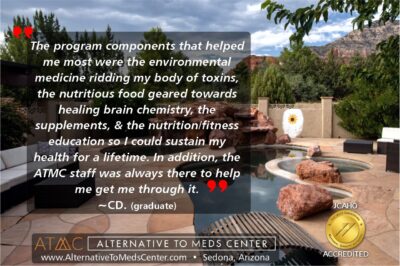Magnesium
Magnesium deficiency is very often found in those suffering from addiction to opiates, alcohol, cocaine, nicotine, amphetamines, and other substances. Magnesium is a mineral that can reduce the intensity of cravings and decrease the frequency of relapse. Magnesium can also reduce the intensity of withdrawals when in addiction recovery.3,10
B Vitamins
Drug use including prescription drugs and alcohol create vitamin deficiencies. The B vitamin group is vital for a functioning CNS, robust neurochemistry, healthy organ functions, and normal brain function. Deficiency in this group of micro-nutrients is linked to many psychological symptoms including anxiety, depression, and stress which are all potent drivers of addiction.11,12
Vitamin A
A large number of studies on vitamin deficiency show a correlation with decreased vitamin A in alcoholism. Vitamin A is a fat-soluble substance that is needed for cell integrity, reproduction, vision, metabolism, a healthy immune system, and many other vital functions.  Addiction recovery should include restoring proper levels of this vital nutrient after it has been depleted.13
Addiction recovery should include restoring proper levels of this vital nutrient after it has been depleted.13
Vitamin C
High levels of vitamin C have been shown to greatly reduce withdrawal symptoms in heroin addiction treatment. Vitamin C is a water-soluble nutrient that the body cannot create on its own — it has to be obtained through food and supplements. Vitamin C is good for oral health, heart health, neurological health, and many other areas that may have been compromised with over use of drugs or alcohol.14
Vitamin D
Vitamin D deficiency has been strongly associated with many types of addiction. Some research suggests a link between vitamin D and dopamine transmission. Since many drugs injure these pathways, restoring vitamin D levels would benefit greatly in addiction treatment.15
Vitamin E
Some research suggests that more than 90% of the population is deficient in vitamin E. In addiction recovery, the chances of this not being the case are slim to none. Vitamin E plays vital roles in human health, including transporting oxygen to the cells, and protects cells from injury. But it cannot do its job unless other nutrients are also available, especially vitamin C, B3, selenium, and glutathione. In addiction recovery, all of these nutrients should be made available.16
Additional Factors that Help Addiction Recovery
Alternative to Meds Center does not employ a one-size-fits-all approach to addiction recovery. Our programs are orthomolecular-based, and utilize a wealth of psychological, physiological, social, and other support therapies that can be tailored to answer the needs of each client.
Treatments assisting a successful recovery can include:
- Corrected diet
- Supplements such as omega-3 oil (repairs damaged neurotransmission), zinc (reduces opioid dependence), amino acids (support brain function)
- Avoid chemically laden, overprocessed foods, sugars, refined carbs
- Lab-testing for deficiencies and correcting these with nutritional support
- Neurotoxin removal, allows for increased nutrient absorption in the cells
- Psychological counseling, CBT, addiction counseling
- Social support, family involvement
- Physical comfort therapies
- Medically supervised holistic medication tapering and withdrawal
- Physical exercise
- Holistic pain relief
- Peer support
**Please check out our services overview for more services delivered at ATMC.**
Addiction, Co-occurring Disorders, and Pharmaceuticals
The entire field of addiction “treatment” has become cluttered with theories that seem to have little scientific basis or practical use. To an alarming extent, addiction treatment has been brutally co-opted by drug companies trying to elbow in and sell their own addictive products. While thousands of pharmaceutical drugs have been sold in the arena of addiction treatment, not a single one has been developed that reverses addiction, or corrects the underlying causes. In contrast, orthomolecular medicine has been shown highly effective in resolving underlying biological contributors to addiction, as well as treating the co-occurring disorders & symptoms that often accompany addiction, outside the parameters of the usual drug-based treatment regimens.
 For example, vitamin D deficiency has long been linked to both depression and addiction.5,6,12
For example, vitamin D deficiency has long been linked to both depression and addiction.5,6,12
Studies have shown a link between vitamin B12 deficiency and dementia symptoms.4
Magnesium deficiency is implicated in drug and alcohol addiction.3,10
Another example is zinc deficiency, which when corrected, was found to reduce opioid dependence in a hospital-based clinical trial from 2021.18
Nutritional & orthomolecular psychiatry would take a different approach than prescribing a drug (or multiple drugs) as an answer to problems in addiction recovery, even in the presence of co-occurring disorders. Fueling our bodies with the needed nutrients can actually clinically help these co-occurring disorders in tandem.
Sources of Vitamins and Other Nutrients Needed for Addiction Recovery
A nutrient-rich diet is often overlooked but it is a powerhouse of a tool for anyone in the process of addiction recovery.9
Overhaul the diet to include foods like these:
- Protein: organic where possible, including beef, pork, poultry, seafood, cheeses, other dairy products, eggs, beans, and tofu. Essential for every organ and system in the body.
- Dark, leafy greens: These should be at the very top of a treatment and recovery diet list. Dark, leafy greens contain magnesium, calcium, vitamin C, and B vitamins as well.
- Beans: A great source of protein and B vitamins
- Fruits and vegetables: these are your super heroes when it comes to providing nutrients needed for cell regeneration, healthy blood and brain function.
Vitamins can also be supplemented easily where needed and can be vital tools for successful addiction recovery.
Nutrition and Holistic Detox at Alternative to Meds Center

Alternative to Meds Center’s addiction treatment programs are unlike anything else you may have experienced in the past. We are not a 12-step or religious-based program, but we’ll be happy to help with transport if these resources are available in the Sedona area and you wish to participate in them.
What we focus on are discovering and changing the bio-physical factors that are keeping your unique addictive patterns in place. That’s why your program will not be exactly the same as anyone else’s. You’ll be working with 40+ dedicated professionals who are familiar with the difficulties, the barriers, and most importantly, the solutions that you’ve been looking for.
The pillars of the program are orthomolecular (nutrition-based) treatment, medically supervised holistic detox, neurotoxin removal, repairing the gut microbiome, and education so that you can take the knowledge and skills you learn here with you for a drug-free and symptom-free life.
Drugs degrade both the human body and spirit and our program is here to provide a reliable pathway out of the damage of the past, so you can emerge free of those deeply embedded chains. You’ll not only learn what vitamins you need in addiction recovery, you’ll understand the bigger picture of the power of nutrition and so much more. Call us today for more information on our unique approach to addiction treatment and how it might hold the answers you’ve been searching for.

 Addiction recovery should include restoring proper levels of this vital nutrient after it has been depleted.13
Addiction recovery should include restoring proper levels of this vital nutrient after it has been depleted.13 For example, vitamin D deficiency has long been linked to both depression and addiction.5,6,12
For example, vitamin D deficiency has long been linked to both depression and addiction.5,6,12








